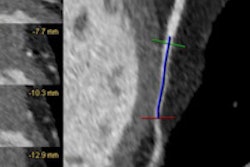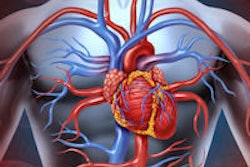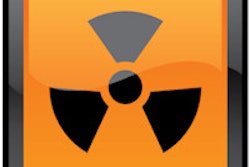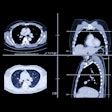Dear AuntMinnie Member,
Imaging facilities in the U.S. should have a better idea how -- and how much -- they'll be getting paid next year now that the U.S. Centers for Medicare and Medicaid Services (CMS) has released its proposed Medicare Physician Fee Schedule (MPFS).
Radiology dodged a bullet in the MPFS, released on Wednesday, receiving no payment increases or decreases. Other subspecialties will see payments increase -- interventional radiology will enjoy a boost of 1% -- but some won't be so lucky. For example, as of January 1, radiation oncology and radiation therapy payments will be slashed.
Learn more by clicking here for an article in our Imaging Leaders Community.
CT vs. IVUS for myocardial bridge
While multidetector-row CT is pretty much the gold standard for the noninvasive evaluation of myocardial bridge abnormalities in the heart, intravascular ultrasound (IVUS) still has something to offer.
That's according to a new study we're highlighting this week in our CT Community, based on a talk at the recent International Symposium on Multidetector-Row CT by Dr. Hans-Christoph Becker from Stanford University.
Myocardial bridges are the most common anomaly in the coronary arteries, and they are often associated with atherosclerotic lesions that are at risk of rupture -- with potentially catastrophic consequences. So Dr. Becker and colleagues compared CT with IVUS in a group of 64 patients to determine the relative merits of each technique.
While CT excelled at anatomic assessment, IVUS was better at detecting noncalcified plaque that may be prone to rupture. Learn more by clicking here, or visit our CT Community at ct.auntminnie.com.
Dutch launch DENSE breast MRI trial
Meanwhile, Dutch researchers are moving forward with an ambitious new randomized controlled trial that aims to answer the following question: Is breast MRI the best supplemental imaging modality for women with dense breast tissue?
The Dense Tissue and Early Breast Neoplasm Screening (DENSE) trial will explore the use of mammography with breast MRI in women with extremely dense breast tissue, comparing it with mammography alone. As we've come to recognize, women with dense breast tissue have a higher risk of breast cancer, an especially vexing problem as dense tissue typically confounds conventional mammography.
Will the women who receive supplemental breast MRI experience fewer interval cancers? Or will breast MRI lead to more false positives and cases of overdiagnosis? Read more by clicking here, or visit our MRI Community at mri.auntminnie.com.
While you're in the community, check out this story on how MRI can be used to identify abnormalities in the brains of people with schizophrenia -- potential aiding therapy.




















